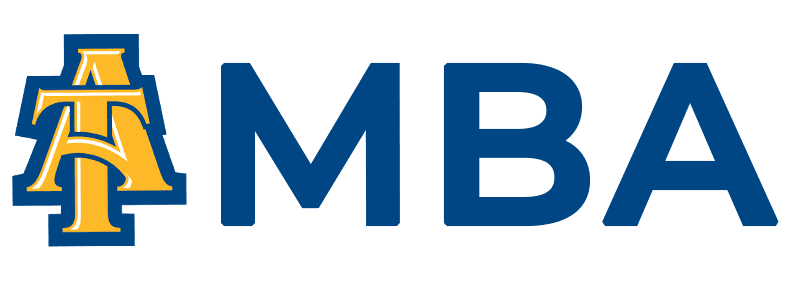MGMT -705: Methods in Business Analysis
This course focuses on building an understanding of mathematical analysis techniques necessary to solve complex business problems from a wide range of business areas, including inventory, customer service, sales, and quality management. Basic statistical concepts and statistical process improvement are covered. Students will use a variety of computer software packages including Microsoft Excel and SPSS.
MGMT-712: Foundation of Enterprise Management
This course provides an understanding of key themes related to successful enterprise management, and discussions of the interpersonal and intellectual skills necessary to contribute to a highly competitive and globalized business environment. Topics include the globalization of commerce, marketing and market systems, competitive strategy, perspectives on legal and ethical business conduct, information technology, and the elements of quality. Individual and team competencies are developed using materials that involve interpersonal skills, problem-solving, and case analysis.
MGMT-715: Quantitative Business Analysis
This course familiarizes students with basic quantitative techniques for decision-making in all business functions. Specific topics will include data collection and presentation; basic descriptive statistics and probability; discrete and continuous probability distributions; confidence intervals; hypothesis testing; business forecasting; linear and multiple regression models; linear, integer, and nonlinear programming; and computer simulation. Emphasis will be on the application of these techniques for managerial decision-making. Prerequisites: ACCT 708, MGMT 705, MGMT 712 and ECON 706.
MKTG–716: Strategic Marketing
This course provides an in-depth examination of the role of marketing in strategic planning and decision-making. Students develop skills critical to directing business-unit marketing strategy and designing or reengineering a customer-driven organization. The course content emphasizes cases and readings. It also exposes students to emerging issues in marketing strategy including relationship marketing and e-commerce. Prerequisites: ACCT 708, MGMT 705, MGMT 712 and ECON 706.
MGMT–718: Management and Organization Analysis
This course is a study of formal organizations as rational, organic, open systems and their behavior in response to an ever-changing, global and domestic environment. It covers macro and micro theories of management and organizations and their application to organizational design and processes. Organizational effectiveness, strategic planning and control, structural designs, leadership, motivation, globalization, and corporate politics and culture are studied through extensive reading, case studies, exploratory research and seminar discussions. Prerequisites: ACCT 708, MGMT 705, MGMT 712 and ECON 706.
MGMT–730: Human Resources Management
This course provides an overview of the design, administration and evaluation of the human resources function. It looks at conceptual issues, polices and practices used by organizations to attract, develop and retain human resources; and the role of human resources management in organizational effectiveness. Topics include an introduction to the activities of the human resource function: staffing, training and development, performance appraisal, compensation and benefits, employee relations, and legal environment of human environment of human resources management, and special issues and challenges in international human resources management. Theories relating to human motivation and behavior are discussed. Prerequisites: ACCT 708, MGMT 705, MGMT 712 and ECON 706.
MGMT–731: Staffing
This course looks at theory and application methods used in the recruitment and selection of employees. Course topics include job analysis, interviewing and testing methods, selection techniques, legal issues in recruitment and selection, internal and external selection processes including performance appraisal and management, staffing philosophies for international operations, and expatriate repatriation. Prerequisites: ACCT 708, MGMT 705, MGMT 712 and ECON 706.
MGMT–732: Training and Development
This course explores the theory and practice used for training and developing human resources in organizations. Course content includes identifying training needs, designing and implementation training programs to satisfy individual and organizational goals, and evaluating training program effectiveness. Workforce diversity, theories of organizational and individual learning, career development, change theory and training for international operations are also discussed. Prerequisites: MGMT 730.
MGMT–733: Compensation and Benefits
This course examines theory and practice in designing and managing compensation and benefit systems in organizations. Issues considered include compensation and benefit systems as vehicles for attracting, motivating, and retaining employees; designing individual and group incentive plans; structuring pension plans; determining wage levels and structures; legal issues and considerations in compensation and benefit administration; and expatriate compensation. Prerequisites: MGMT 730.
MGMT–734: Employee Relations
This course examines the policies and practices used to promote equitable treatment of employees. Topics include employee health and safety, employee communication, equal opportunity and affirmative action, workforce diversity, employee rights, conflict resolution, industrial relations, and international labor relations. Also includes legal aspects of employee relations. Prerequisites: MGMT 730.
MGMT–735: Contemporary Issues in HRM
This course considers important issues affecting the acquisition and utilization of human resources in a dynamic global environment. Topics vary and depend on the current HRM environment. Prerequisites: ACCT 708, MGMT 705, MGMT 712 and ECON 706.
MGMT–736: HRM Strategy
This course focuses on the formulation and implementation of human resources management strategies. Emphasis is placed on the strategic dimensions of recruitment, selection, development and retention of a workforce needed to accomplish organization strategic objectives. Prerequisites: ACCT 708, MGMT 705, MGMT 712 and ECON 706.
